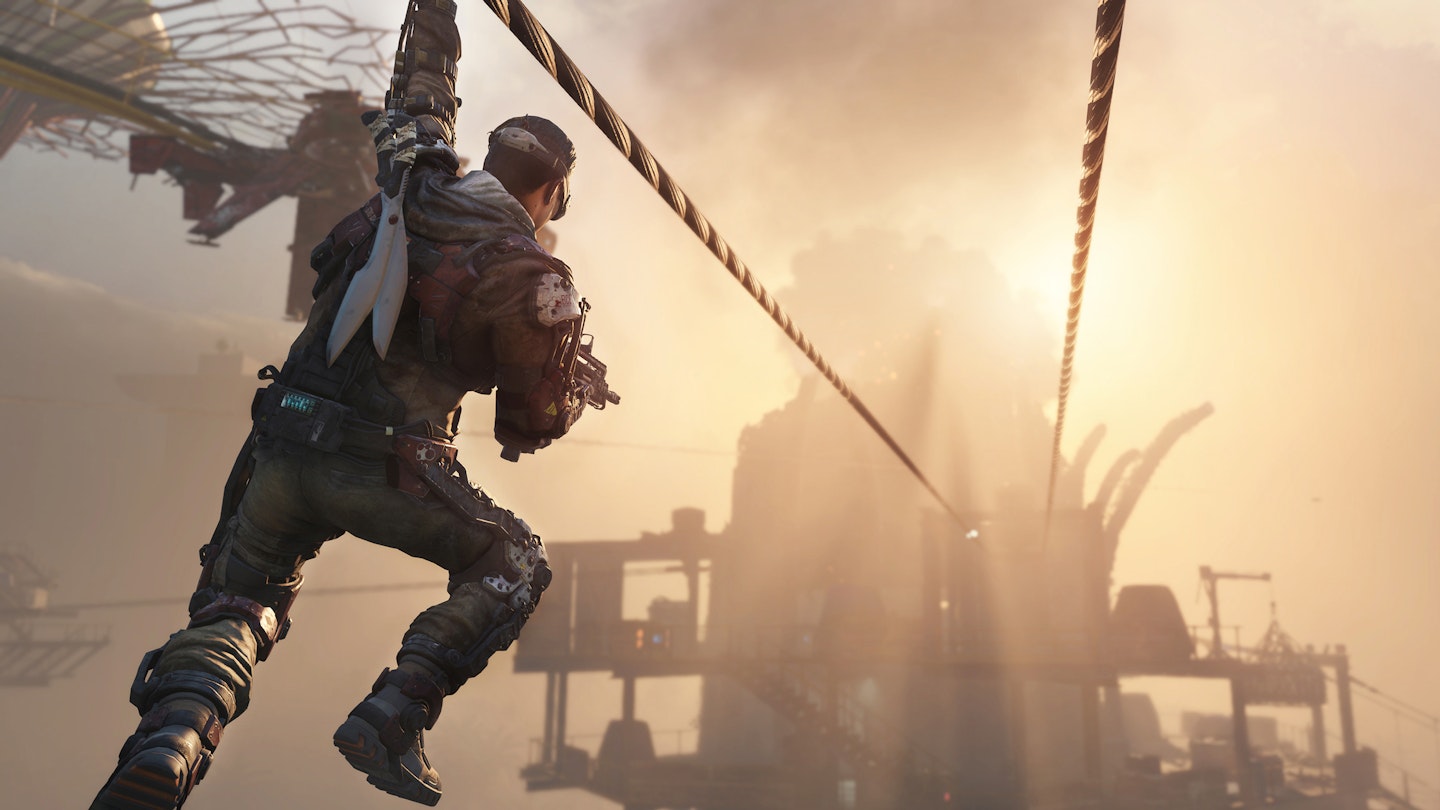Ever since it became a stratospheric sales success – and sure enough, Black Ops III has already enjoyed this year’s most successful opening weekend for any entertainment property, raking in $550 million during its first three days on sale – making a new Call Of Duty game has become a delicate balancing act. On the one hand, publisher Activision understandably doesn’t want to mess with its formula. But on the other, even the most diehard Call Of Duty fans won’t buy a game which is more or less indistinguishable from last year’s effort. To its credit, Activision has taken steps to address that dilemma: Call Of Duty’s development is now shared between three, rather than two, developers. And Treyarch, which made Black Ops III, has slowly emerged to replace Infinity Ward as the best of the bunch.
Call Of Duty veterans will have a pretty good idea of what to expect from Black Ops III. 2012’s *Black Ops II *explored warfare in the near-future, and – logically enough – *Black Ops III *picks up the theme 40 years afterwards, in 2065. By which time, Treyarch’s crystal ball tells us, we’ll have cyber-enhanced soldiers with artificial intelligence chips embedded in their brains. After a prologue mission in Ethiopia, the character you play (and you can choose their sex) has various limbs sliced off by a robot. So you’re rebuilt with a cyber-skeleton and a Direct Neural Interface (DNI) chip. Which, between them, bring about enhanced movement including a boost-jump and devastating melee attack, plus countless superhuman abilities such as a visual mode which highlights enemies in orange, the chance to stun both humans and robots from a distance and hacking skills that extend to pretty much all of the enemy machinery you encounter.
Given those capabilities, it should come as no surprise that the campaign storyline (which has been left out of the Xbox 360 and PS3 versions) goes big on the wham-bam, Michael Bay-style action. And it does yield some memorable sequences, such as when you’re beset by wave after wave of robots, whose power-cores you can rip out and use as immobilising grenades, and a number of decent boss-battles. But there’s a problem with the story, which ends up trying a bit too hard to differentiate itself from those of all the other instalments. It hits upon a theme about distinguishing between reality and fantasy when you’ve got a chip in your head, but gets annoyingly existential in the process, and spends far too much time in a sort of cyber-Twilight Zone.
However, Call Of Duty games have never been primarily about the single-player campaigns, and Black Ops III’s multiplayer certainly delivers. The improved movement adds a feeling of freshness: you have to master techniques like wall-runs and knee-slides in order to survive. All the classic modes are present and correct, along with a couple of decent new ones such as Uplink, which is essentially basketball with guns. It somehow seems a bit more forgiving for those who don’t spend their entire lives playing Call Of Duty online: the improved movement, for example, mitigates those irritating campers with sniper rifles who pick you off from half a map away. Treyarch has nabsolutely ailed the multiplayer side of Black Ops III: it’s faster, more furious and a lot more spectacular than any instalment in the series to date.
But that’s not all: the much-loved Zombies, in which you see how far you can go against wave after wave of zombified enemies, is back and better than ever. This time around, it feels like a game in its own right, with two different storylines, a sleazy 1940s theme and some agreeable weirdness: you can, for example, transform into an octopus-like 'Beast', which lets you solve basic puzzles that open up new play-areas. Zombies alone is insanely addictive, and as a package, Black Ops III feels meatier than any of its predecessors.
For years, a legion of doom-sayers has predicted that Call of Duty’s insistence on churning out a new instalment every year will eventually lead to its demise. But Black Ops III proffers a pretty compelling two fingers to any such suggestion. Sure, the single-player storyline descends into tedium, and the game as a whole never quite manages a total reinvention of the franchise. But it is impeccably executed, and has enough freshness to demonstrate that there’s life in the old cash-cow yet.
